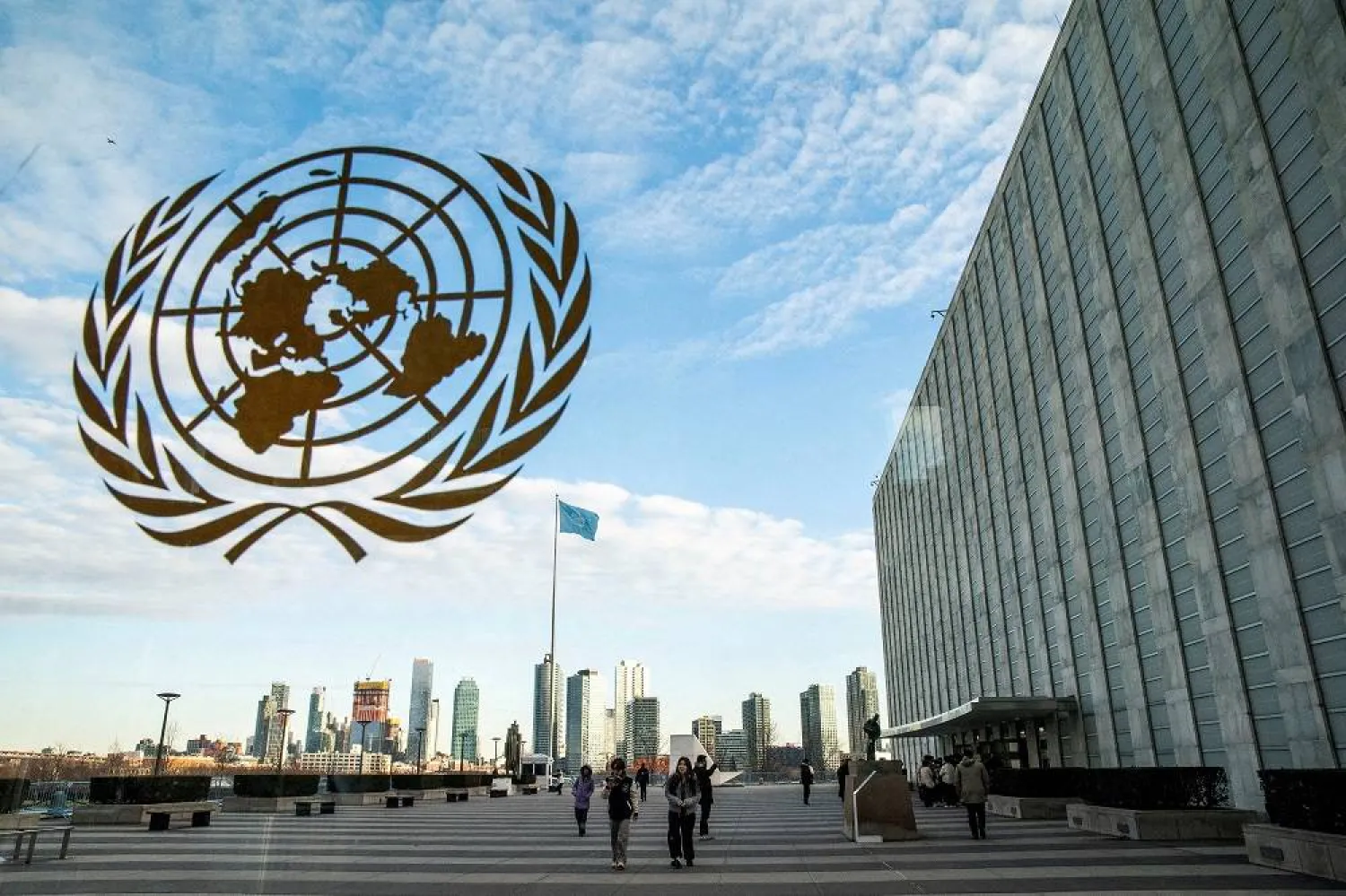The United States and its key European allies clashed with Iran and Russia over Tehran’s expanding nuclear program, with the US vowing “to use all means necessary to prevent a nuclear-armed Iran” in a UN Security Council meeting on Monday.
The US, France, Britain and Germany accused Iran of escalating its nuclear activities far beyond limits it agreed to in a 2015 deal aimed at preventing Tehran from developing nuclear weapons, and of failing to cooperate with the UN nuclear watchdog, the International Atomic Energy Agency.
Iran and Russia accused the US and its allies of continuing to apply economic sanctions that were supposed to be lifted under the deal, and insisted that Tehran’s nuclear program remains under constant oversight by the IAEA.
The clashes came at a semi-annual meeting on implementation the nuclear deal between Iran and six major countries — the US, Russia, China, Britain, France and Germany — known as the Joint Comprehensive Plan of Action.
Under the accord, Tehran agreed to limit enrichment of uranium to levels necessary for the peaceful use of nuclear power in exchange for the lifting of economic sanctions.
Then-President Donald Trump pulled the US out of the deal in 2018. Trump said he would negotiate a stronger deal, but that didn’t happen.
The council meeting followed an IAEA report in late May that Iran has more than 142 kilograms (313 pounds) of uranium enriched up to 60% purity, a technical step away from weapons-grade level of 90%. The IAEA said this was an increase of over 20 kilograms (45 pounds) from February.
The IAEA also reported on June 13 that its inspectors verified that Iran has started up new cascades of advanced centrifuges more quickly enrich uranium and planned to install more.
US deputy ambassador Robert Wood told the council that the IAEA reports “show that Iran is determined to expand its nuclear program in ways that have no credible civilian purpose.”
Wood said the US is prepared to use all means to prevent a nuclear-armed Iran, but said it remains "fully committed to resolving international concerns surrounding Iran’s nuclear program through diplomacy.”
The three Western countries that remain in the JCPOA — France, Germany and the United Kingdom — issued a joint statement after the council meeting also leaving the door open for diplomatic efforts “that ensure Iran never develops a nuclear weapon.”
They said Iran’s stockpile of highly enriched uranium is now 30 times the JCPOA limit, and stressed that Iran committed not to install or operate any centrifuges for enrichment under the JCPOA.
Their joint statement also noted that “Iranian officials have issued statements about its capacity to assemble a nuclear weapon.”
Iran’s UN Ambassador Amir Saeid Iravani blamed “the unilateral and unlawful US withdrawal from the JCPOA” and the failure of the three European parties to the deal “to honor their commitments,” saying it is “crystal clear” they are responsible for the current non-functioning of the agreement.
In the face of US and European sanctions, he said, Iran has the right to halt its commitments under the JCPOA.
Iravani reiterated Iran’s rejection of nuclear weapons, and insisted its nuclear activities including enrichment are “for peaceful purposes” and are subject to “robust verification and monitoring” by the IAEA.
The Iranian ambassador strongly endorsed the JCPOA, calling it a hard-won diplomatic achievement “that effectively averted an undue crisis.”
“It remains the best option, has no alternative, and its revival is indeed in the interest of all of its participants,” he said. “Our remedial measures are reversible if all sanctions are lifted fully and verifiably."
But France, Germany and the UK said some of Iran’s nuclear advances are irreversible.
Russia’s UN Ambassador Vassily Nebenzia said US promises “to abandon the policy of maximum pressure on Tehran and to return to the nuclear deal remained empty words.”
He accused some other JCPOA parties, which he didn’t name, of “doing everything possible to continuously rock the boat, jettisoning opportunities for the implementation of the nuclear deal.”
Nebenzia urged the European parties to the agreement and the United States to return to the negotiating table in Vienna and “demonstrate their commitment to the objective of restoration of the nuclear deal.”
EU foreign policy chief Josep Borrell, the coordinator of the JCPOA, said the compromise text he put forward two years ago for the US to return to the JCPOA and for Iran to resume full implementation of the agreement remains on the table.









